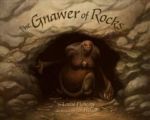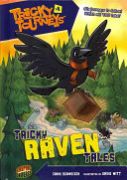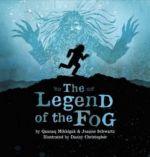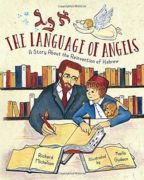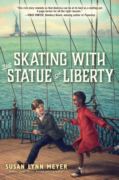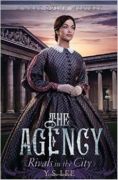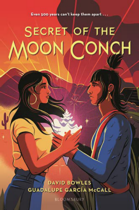
In modern Mexico, Sitlali is all alone after the death of her beloved abuela. Targeted by a dangerous gang member, she flees to the United States. As a memento, she takes with her an ancient conch shell. In 1521, Calizto is trapped in the Aztec city of Tenochtitlan. He has fought valiantly for his people against Spanish invaders, but hope is fading. Desperate, he takes up a sacred conch and sounds a plea to the gods. The conch holds magic neither understand. The magic allows them to communicate across centuries. With each conversation, they fall deeper in love. But as danger threatens, will they find a way to be truly together?


